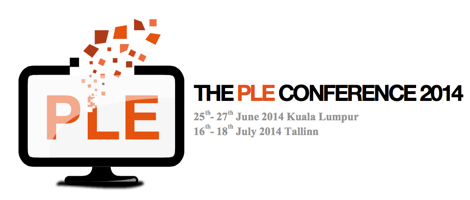Personal Learning Environments Conference 2014
In case you missed it first time round, the PLE 2014 Conference has issues a second call for contributions. The new deadline for the submission of extended abstracts: April 1, 2014. The theme of the conference is Beyond formal: emergent practices for living, learning and working.
PLE 2014 – the 5th International Conference on Personal Learning Environments – will take place in Tallinn, Estonia, from July 16th to 18th with a preceding “pacific” event in Kuala Lumpur, Malaysia, from June 25th to 27th.
The PLE Conference intends to create an engaging, conversational, and innovative meeting space for researchers and practitioners to exchange ideas, experiences, and research around PLE related themes.
The conference invites contributions in the format of “academic papers” or “alternative session proposals”. However, authors of both types of contributions will be asked to communicate their research and ideas within session formats that look to avoid the traditional 15 minute presentation.
The 5th Edition of the PLE conference aims to move beyond discussions about definitions to explore emergent practices for living, learning and working in relation to PLEs and the new understandings and underlying needs that arise around these practices in our contemporary society. Delegates are invited to submit their ideas, research and/or practice under the topics listed below.
Topics include (but are not limited to)…
- PLEs for managing life transitions
- PLE and formal learning contexts: conflicts and confluences
- PLE theoretical frameworks
- PLE in early childhood and the family
- PLE as literacy
- PLE and portfolios
- PLE and PLNs (Personal Learning Networks)
- PLE and creative practice
- PLEs in formal contexts (Schools, Vocational, Higher Education)
- PLES in Lifelong Learning
- The social PLE
- Personal Learning and assessment
- Digital footprints and identities
- Ownership and agency
- Emergent pedagogies and approaches
- Innovative work-based learning and practices
- PLEs and technologies
- Personal learning and the creative economy
- Future challenges in the PLE context

